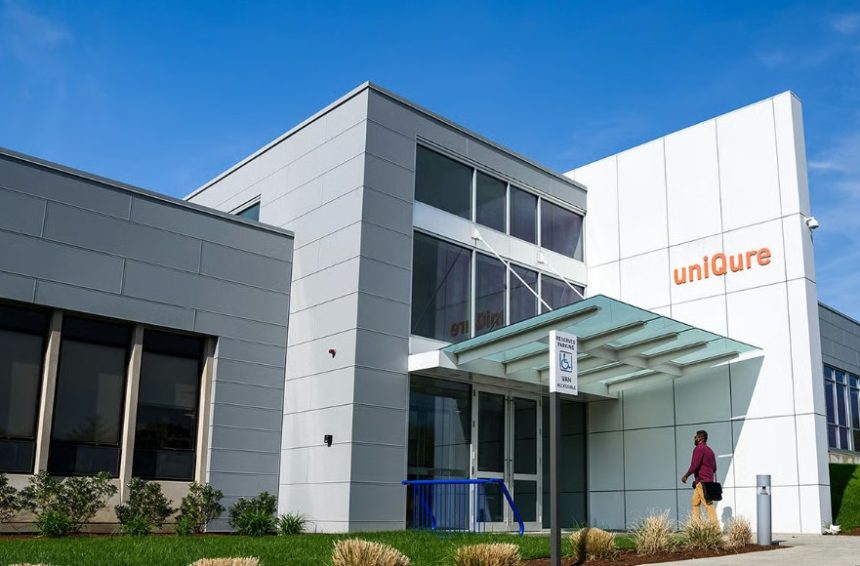uniQure’s AMT-130 Gene Therapy Shows Major Progress in Huntington’s Disease
In a major development for Huntington’s disease ( HD) treatment, uniQure N.V. has announced promising results from its vital Phase I/ II clinical trial of AMT-130, a gene therapy aimed at decelerating disease progression.
The study achieved its primary endpoint, showing a 75% reduction in complaint progression over 36 months, as measured by the compound Unified Huntington’s Disease Rating Scale( cUHDRS).
We announced positive topline data from the pivotal study of our #genetherapy AMT-130 for #huntingtonsdisease, which met its primary endpoint, demonstrating a 75 percent slowing of disease progression as measured by cUHDRS compared to an external control. https://t.co/h2ALjhjqTL pic.twitter.com/S3iFAJoihC
— uniQure (@uniQure_NV) September 24, 2025
Positive Impacts
- Primary Endpoint Achieved: High-dose AMT-130 demonstrated a statistically significant 75% slowing of disease progression at 36 months compared to a matched control group.
- Secondary Endpoint Success: The therapy also showed a 60% reduction in disease progression as measured by Total Functional Capacity (TFC).
- Cognitive and Motor Function Improvements: Positive trends were observed across multiple cognitive and motor assessments, including the Symbol Digit Modalities Test (SDMT) and Stroop Word Reading Test (SWRT).
- Biomarker Evidence: A mean reduction of 8.2% in cerebrospinal fluid neurofilament light protein (NfL) levels suggests a potential decrease in neuronal damage.
- Safety Profile: The high-dose AMT-130 was generally well-tolerated, with no new drug-related serious adverse events reported since December 2022.
Experts Insight
“I am thrilled that this pivotal study of AMT-130 showed statistically significant effects on both cUHDRS and TFC at 36 months, supported by mean CSF NfL remaining below baseline.
I believe these groundbreaking data are the most convincing in the field to date and underscore potential disease-modifying effects in Huntington’s disease, where an urgent need persists.
These data indicate that AMT-130 has the potential to meaningfully slow disease progression – offering long-awaited hope to individuals and families impacted by this devastating disease.”
uniQure plans to submit a Biologics License Application ( BLA) for AMT- 130 in the first quarter of 2026, with an implicit U.S. launch later that time, pending nonsupervisory blessing.
The remedy has formerly entered both Advanced Remedy and Regenerative Medicine Advanced Therapy( RMAT) designations from the U.S. Food and Drug Administration, easing an expedited development and review process.
The results from this Phase I II study represent a significant advance in Huntington’s disease treatment. With promising efficacy and a manageable safety profile, AMT-130 could offer na ew stopgap to cases and families affected by this enervating condition.
For more information, visit uniQure’s official website.






